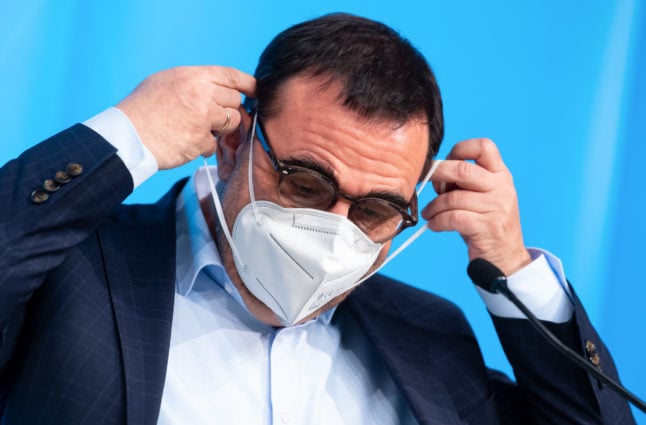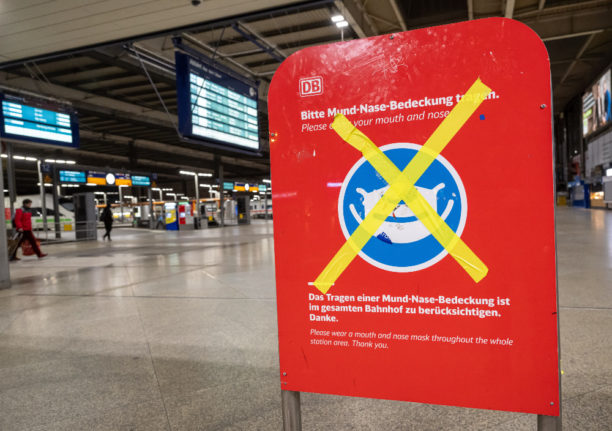Following the so-called ‘freedom day’ on March 20th, most German states have been following a transitional phase-out of Covid restrictions, meaning that rules such as indoor mask wearing and 2G or 3G access rules for restaurants and bars will continue to be in force until the beginning of April.
But Bavaria’s Health Minister, Klaus Holetschek (CSU), who has previously criticised the early relaxing of Covid measures, has now called for an extension of mask wearing in Bavaria for another four weeks.
READ ALSO: German ‘freedom day’ arrives but states delay end to restrictions
In an interview with the Augsburger Allgemeine Newspaper, Holetschek criticised the early ending of Covid restrictions and said that “the whole of Germany is one hotspot…almost everyone outside the government quarter in Berlin has already realised this”. For this reason, he called for extending the obligation to wear masks in indoor areas in Bavaria for another four weeks.
Unclear hotspot rules
The Covid ‘hotspot regulation’ is part of the new legal framework which allows states to reintroduce additional measures – such as having to show vaccination status or proof of recovery to visit restaurants and bars – if the health system becomes overloaded or dangerous new virus variants are detected. But there are currently no threshold values for when this rule should take effect.
Bavaria’s health minister also criticised the lack of clarity with the rules and called for nationwide uniform criteria for the application of the hotspot rule, or an extension of the transition period. “The hotspot rules are far too woolly and do not allow us to implement them with legal certainty,” said Holetschek.
It is also disputed whether it is legally possible to declare an entire federal state a hotspot. “There is a big gap between what Health Minister Karl Lauterbach and Justice Minister Marco Buschmann say,” Holetschek said.
READ ALSO: German states clash with government over new Covid protection laws
Mecklenburg-Western Pomerania, for example, has already declared the whole state a hotspot, while states such as Baden-Wurttemberg and Lower Saxony see no grounds for a hotspot regulation at the moment, despite the record number of new infections.
On Monday, the state health ministers will meet Federal Health Minister Karl Lauterbach (SPD) to discuss the hotspot rules in more detail and to clarify at what point the rule can take effect for regions with high Covid numbers once the transition period is over.
The criticism and reluctance to reduce Covid restrictions comes after the nationwide number of Covid infections detected since the beginning of the pandemic passed the 20 million mark over the weekend.
READ ALSO: Germany logs 1.5 million weekly Covid infections as Omicron subtype spreads
On Sunday, the Robert Koch Institute (RKI) gave the figure of new infections per 100,000 inhabitants per week on Sunday as 1723.8, slightly lower than the previous day (1758.4), although the new figure does not include data from Baden-Württemberg and Brandenburg.



 Please whitelist us to continue reading.
Please whitelist us to continue reading.
Member comments